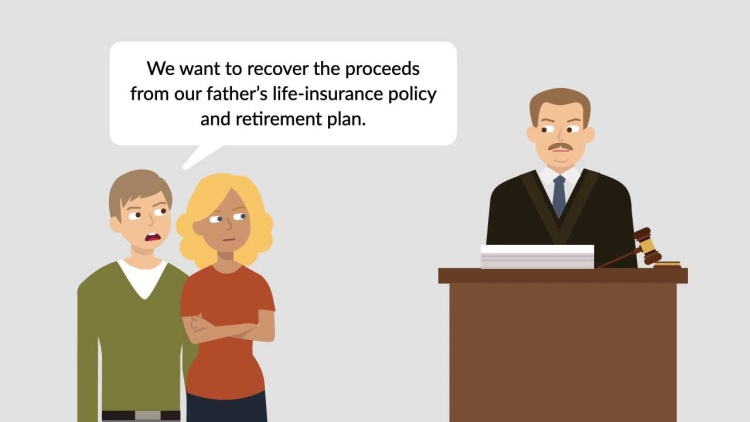Egelhoff v. Egelhoff
United States Supreme Court
532 U.S. 141 (2001)

- Written by Christine Raino, JD
Facts
David A. Egelhoff (David Sr.) and Donna Rae Egelhoff (defendant) divorced in April 1994. Approximately two months later, David Sr. died intestate after a car accident. While they were married, David Sr. had designated Donna Rae as the beneficiary of a life-insurance policy and pension plan provided by his employer, Boeing Company, both of which were governed by the Employee Retirement Income Security Act of 1974 (ERISA). After life-insurance proceeds totaling $46,000 were paid to Donna Rae as the named beneficiary of the policy, Samantha and David Egelhoff (David Jr.) (plaintiffs), David’s children from a prior marriage, commenced two separate actions against Donna Rae in Washington state court to recover the insurance proceeds and the pension-plan benefits. In both actions, Samantha and David Jr. claimed a Washington statute had revoked the beneficiary designation of Donna Rae by operation of law because Dona Rae and David Sr. were divorced at the time of his death. The state statute on which they relied provided that any nonprobate asset, defined to include “a life insurance policy” or “employee benefit plan,” that was payable or transferable upon death to a former spouse was revoked and treated as though the surviving spouse had predeceased the decedent spouse. Following a ruling by the Washington Supreme Court in favor of Samantha and David Jr., Donna Rae petitioned the United States Supreme Court for review of the decision.
Rule of Law
Issue
Holding and Reasoning (Thomas, J.)
Dissent (Breyer, J.)
What to do next…
Here's why 907,000 law students have relied on our case briefs:
- Written by law professors and practitioners, not other law students. 47,100 briefs, keyed to 996 casebooks. Top-notch customer support.
- The right amount of information, includes the facts, issues, rule of law, holding and reasoning, and any concurrences and dissents.
- Access in your classes, works on your mobile and tablet. Massive library of related video lessons and high quality multiple-choice questions.
- Easy to use, uniform format for every case brief. Written in plain English, not in legalese. Our briefs summarize and simplify; they don’t just repeat the court’s language.





